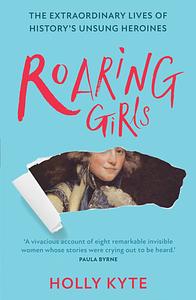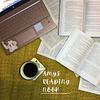Take a photo of a barcode or cover
emotional
funny
informative
inspiring
reflective
sad
slow-paced
Roaring Girls is an account of the lives of different 'forgotten' women who made an impact on British history. They are figures who lived from the seventeenth to the nineteenth century, some more likely to be known or heard of than others, and they all defied rules or conventions in various ways. Starting with Mary Frith or 'Moll Cutpurse', the titular 'Roaring Girl' of Middleton and Dekker's play, Kyte includes people who fought to change opinion (like Mary Prince, who escaped slavery and had her memoir published in Britain) or live as they wanted (like Anne Lister and Charlotte Charke).
The book is detailed despite only having a small space to cover each of their lives and provides an interesting look at these women. Many people will have heard of at least some of the women in the book (particularly after the TV series about Anne Lister), and the reading experience may be best when you're discovering a new figure tied up with issues or people you've already heard about (such as Caroline Norton's connections with various famous figures and also the fight for women's rights in the law). Obviously there were a lot of different women who Kyte could have chosen to include and some of the people in it (like Anne Lister or Margaret Cavendish) are more well-known than others, but it can introduce a wide audience to previously unknown historical figures and question what they think about gender in previous centuries.
The book is detailed despite only having a small space to cover each of their lives and provides an interesting look at these women. Many people will have heard of at least some of the women in the book (particularly after the TV series about Anne Lister), and the reading experience may be best when you're discovering a new figure tied up with issues or people you've already heard about (such as Caroline Norton's connections with various famous figures and also the fight for women's rights in the law). Obviously there were a lot of different women who Kyte could have chosen to include and some of the people in it (like Anne Lister or Margaret Cavendish) are more well-known than others, but it can introduce a wide audience to previously unknown historical figures and question what they think about gender in previous centuries.
informative
I'm a big fan of both history and books that are broken down into shorter stories, so I was a big fan of this book. An exploration into British pre-feminist history through women who broke boundaries and social norms, sometimes in the interest of the expansion of liberties for women across Britain, and sometimes purely because that was how they wanted to live their lives, I felt this book was a lovely tribute to the more hidden figures who make up our history. Sure, I had heard of a few of them before, but it was lovely to delve more into their stories and expand my own horizons.
informative
inspiring
medium-paced
informative
Big fat DNF.
Interesting topic but it’s just a really heavy read and it feels like it should be a prescribed text book for a Uni degree.
If the stories for each lady had been a little lighter or easier to digest then I would have continued but I’m just not inclined to read on when there are so many other things out there. Sorry...
Interesting topic but it’s just a really heavy read and it feels like it should be a prescribed text book for a Uni degree.
If the stories for each lady had been a little lighter or easier to digest then I would have continued but I’m just not inclined to read on when there are so many other things out there. Sorry...
informative
inspiring
lighthearted
reflective
slow-paced
funny
informative
inspiring
reflective
slow-paced
I'm not sure I would classify all of the women highlighted in this collection as feminists. Many of them were simply living their lives as they saw fit, and not necessarily to fight any sort of opposition. For example, the author makes a point of stating that the act of cross-dressing during the 16th and 17th centuries was viewed by the general public as crass, vulgar, and downright scandalous. However, those such as Mary Frith and Anne Lister who wore men's clothing on the regular weren't doing it for the attention - they were doing it because it was comfortable to them, and meshed best with their personalities. I think the author tried so hard to get us to believe that certain actions made by the women she wrote about were *so* daring, when they were in fact rather benign.
That's not to say I didn't enjoy this collection. I enjoyed reading about women from history I hadn't heard of before, from a country I don't live in (England, in this case.) I also liked that we were introduced to women of different social classes and races, and it's clear the author did heaps of research, especially for those who were previously only footnotes in history books.
That's not to say I didn't enjoy this collection. I enjoyed reading about women from history I hadn't heard of before, from a country I don't live in (England, in this case.) I also liked that we were introduced to women of different social classes and races, and it's clear the author did heaps of research, especially for those who were previously only footnotes in history books.







